Only one way to get there……….GETTING IN TO HEAVEN
A man dies and goes to heaven. Of course, St. Peter meets him at the Pearly Gates. St. Peter says, “Here’s how it works. You need 100 points to make it into heaven.
You tell me all the good things you’ve done, and I give you a certain number of points for each item, depending on how good it was. When you reach 100 points, you get in.
“Okay,” the man says, “I was married to the same woman for 50 years and never cheated on her, even in my heart.” “That’s absolutely wonderful,” says St. Peter, “that’s worth three points!”
“Three points?” he says. “Well, I attended church all my life and supported its ministry with my tithe and service.” “Terrific!”! says St. Peter. “That’s certainly worth a point.”
“One point!?!!” “Well I started a soup kitchen in my city and worked in a shelter for homeless veterans.” “Fantastic, that’s good for two more points,” he says.
” Only two points!?!!” Exasperated, the man cries. “At this rate the only way I’ll ever get into heaven is by the grace of God.”
“Bingo … 100 points! Come on in!”
We often try to fix problems with WD-40 and duct tape. God did it with a nail.
Category Archives: Quotes
Christian Quotation of the Day
I don’t know why some people change churches; what difference does it make which one you stay home from?
Christian Quotation of the Day
The Will of God will nevertake you to where the Grace of God will not protect you.
Christian Quotation of the Day
Faith is not only a commitment to the promises of Christ; faith is also a commitment to the demands of Christ.
…William Barclay (1907-1978), The Letters of James and Peter [1976]
Christian Quotation of the Day
Can we believe that God ever really modifies His action in response to the suggestions of men? For infinite wisdom does not need telling what is best, and infinite goodness needs no urging to do it. But neither does God need any of those things that are done by finite agents, whether living or inanimate. He could, if He chose, repair our bodies miraculously without food; or give us food without the aid of farmers, bakers, and butchers, or knowledge without the aid of learned men; or convert the heathen without missionaries. Instead, He allows soils and weather and animals and the muscles, minds, and wills of men to cooperate in the execution of His will… It is not really stranger, nor less strange, that my prayers should affect the course of events than that my other actions should do so. They have not advised or changed God’s mind — that is, His overall purpose. But that purpose will be realized in different ways according to the actions, including the prayers, of His creatures.
…C. S. Lewis (1898-1963), “The Efficacy of Prayer”
Christian Quotation of the Day
God is none other than the Saviour of our wretchedness. So we can only know God well by knowing our iniquities… Those who have known God without knowing their wretchedness have not glorified him, but have glorified themselves.
…Blaise Pascal (1623-1662)
Feast of Mary, Martha & Lazarus, Companions of Our Lord
Christian Quotation of the Day
BERTRAND RUSSELL: In conclusion, there is a marvelous anecdote from the occasion of Russell’s ninetieth birthday that best serves to summarize his attitude toward God and religion. A London lady sat next to him at this party, and over the soup she suggested to him that he was not only the world’s most famous atheist but, by this time, very probably the world’s oldest atheist. “What will you do, Bertie, if it turns out you’re wrong?” she asked. “I mean, what if — uh — when the time comes, you should meet Him? What will you say?” Russell was delighted with the question. His bright, birdlike eyes grew even brighter as he contemplated this possible future dialogue, and then he pointed a finger upward and cried, “Why, I should say, ‘God, you gave us insufficient evidence.'” Al Seckel, in Preface to Bertrand Russell on God and Religion
Christian Quotation of the Day
“Your time equals your life. You can run out of money and still have some time left. You can run out of friends with life to spare. But once you run out of time, it’s over.”
Andy Stanley, The Best Question Ever, Sisters, Oregon, Multnomah Publishers, 2004, p. 65.
cog’nitive dis’sonance
Christian Quotation of the Day
A lot of church members who are singing “Standing on the Promises” are just sitting on the premises.
Christian Quotation of the Day
We don’t change the message, the message changes us.

